
Exploring the Rise of Sustainable Cow Products in Modern Eco-Friendly Living
In recent years, the demand for sustainable cow products has surged, reflecting a growing awareness of the environmental impact of traditional farming practices. Consumers are increasingly seeking alternatives that align with eco-friendly living principles, prompting a significant shift in the dairy and beef industries. This movement towards sustainability encompasses not only the methods of production but also the ethical treatment of animals and the health implications of consuming cow products.
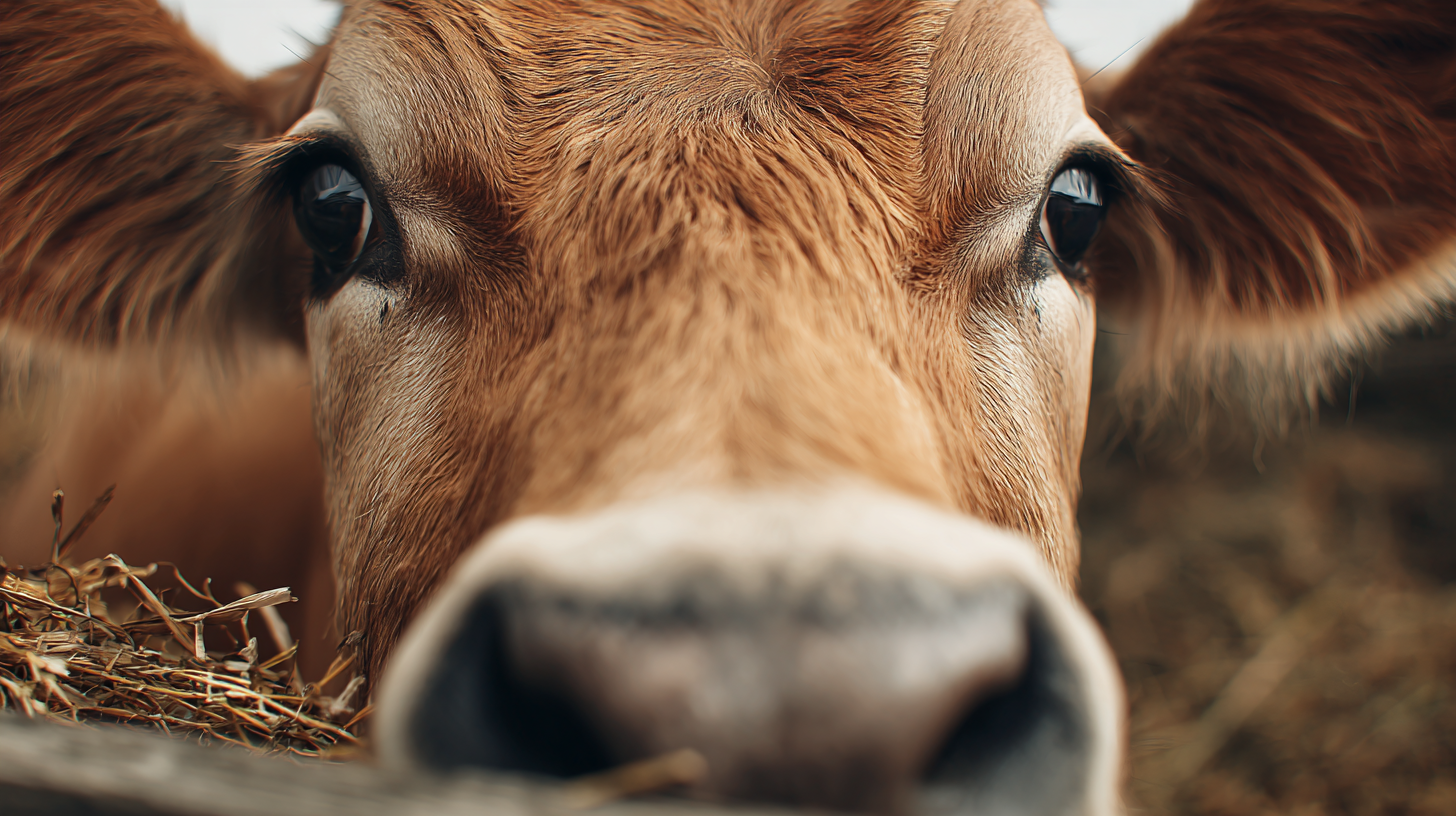
From pasture-raised dairy to grass-fed beef, innovative practices are emerging to meet the expectations of a more environmentally conscious market. In this article, we will explore various approaches to finding and utilizing sustainable cow products, offering practical tips for integrating these choices into daily life. By understanding the benefits and options available, individuals can make informed decisions that contribute to a healthier planet while still enjoying the rich flavors and nutritional benefits of cow products.
The Growing Demand for Sustainable Cow Products in Eco-Friendly Households
The growing demand for sustainable cow products in eco-friendly households reflects a significant shift in consumer consciousness towards environmental stewardship. As awareness of climate change impacts on agriculture escalates, more consumers are prioritizing products that support sustainable practices. The dairy industry, in particular, is examining milk quality as a pivotal factor in enhancing environmental efficiency and minimizing waste, leading to more sustainable production methods.
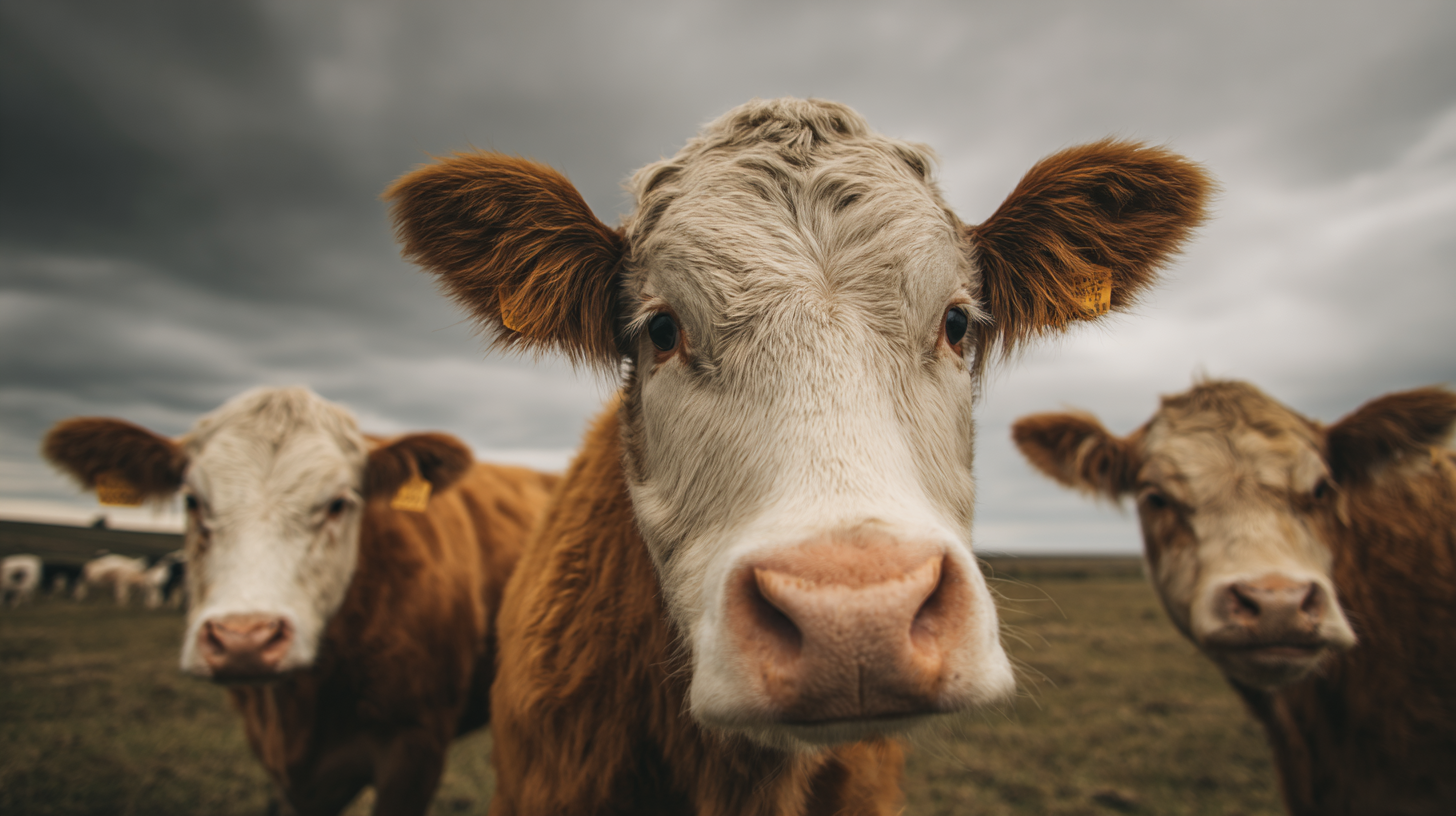
Amidst this transformation, the wellness movement is reshaping preferences, with an increasing number of consumers opting for "Better For" products that align with their values of sustainability and health. This rise in demand is propelling the agricultural sector towards embracing practices that protect land, water, and biodiversity. As households become more eco-conscious, the market for sustainable cow products is likely to thrive, demonstrating that sustainability is not merely a trend but a fundamental aspect of modern consumer behavior.
Understanding the Environmental Impact of Traditional Dairy Farming
Traditional dairy farming has long been associated with significant environmental concerns. The production of milk contributes to greenhouse gas emissions, deforestation, and water pollution. Cows require vast amounts of feed, which often leads to the conversion of forests into agricultural land. This not only affects biodiversity but also impacts local water sources due to runoff from fertilizers and waste. As awareness of these issues grows, the demand for sustainable cow products is on the rise.
Tips for supporting eco-friendly dairy practices include choosing products from local farms that emphasize sustainable farming methods. Look for dairy brands that are certified organic or grass-fed, as these practices typically have a lower environmental impact. Additionally, consider reducing overall dairy consumption and exploring alternative milk products, such as almond or oat milk, which often have a smaller carbon footprint. By making informed choices, consumers can play a significant role in promoting a shift towards more sustainable dairy alternatives and help mitigate the negative effects of traditional dairy farming on our planet.
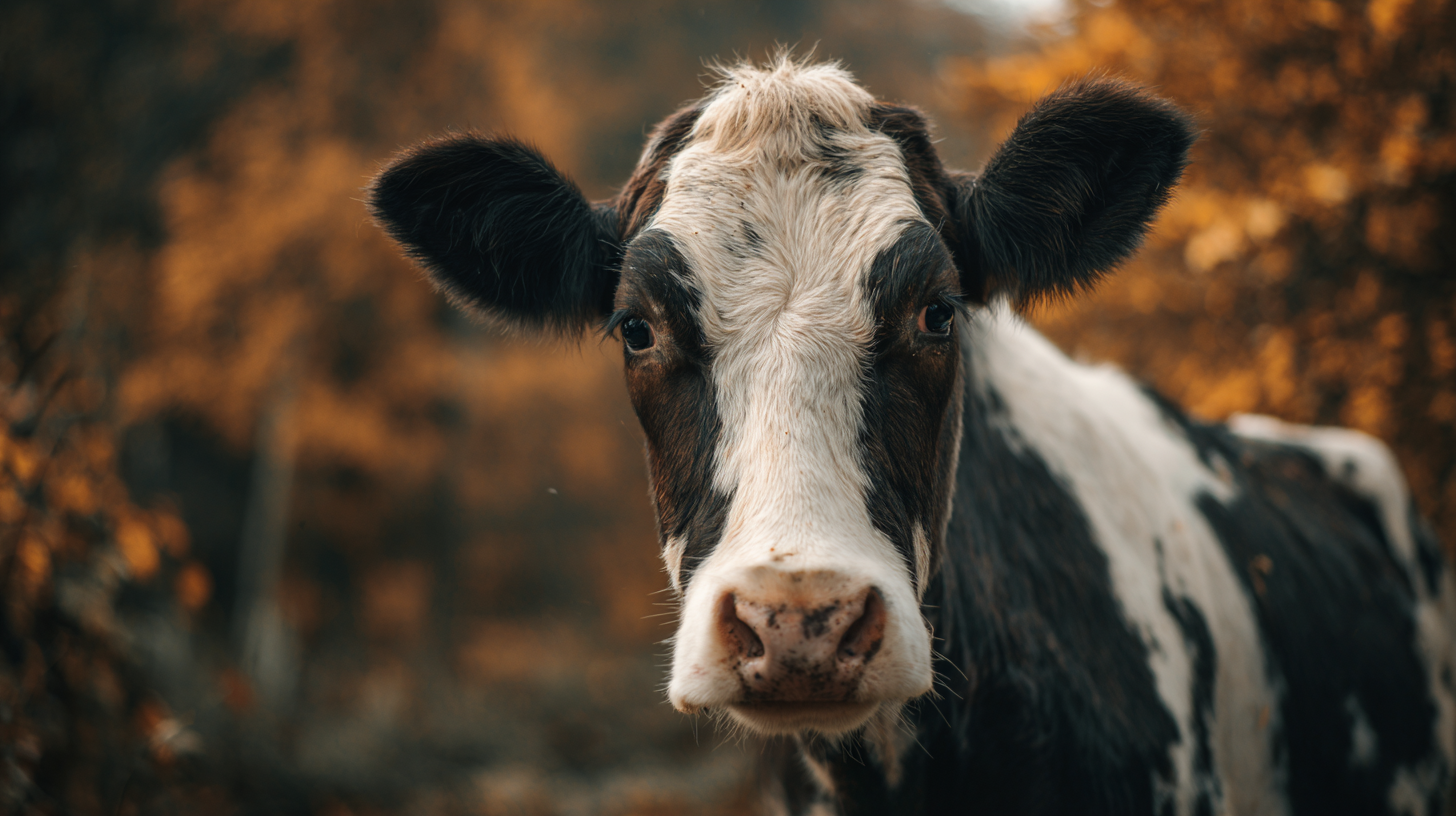
Innovative Practices in Sustainable Cattle Raising
Innovative practices in sustainable cattle raising are becoming increasingly essential as the demand for eco-friendly products rises. One approach focuses on integrating new technologies into cattle management, such as precision farming techniques that enhance productivity while minimizing environmental impact. These advancements not only increase efficiency but also ensure that farms can produce high-quality, nutritious products with a lower carbon footprint. The growing emphasis on sustainability is supported by knowledge-sharing initiatives, such as training programs and peer-to-peer learning groups, which equip farmers with the tools necessary to implement these innovative practices.
Additionally, attention to animal welfare plays a critical role in modern sustainable cattle raising. Standards for assessing and managing the wellbeing of cattle are pivotal in creating humane farming conditions. For example, initiatives aimed at sustainable management of tick infestations underscore the importance of using diverse management strategies. These not only protect animal health but also contribute to greater overall farm productivity. As the cattle industry evolves, these innovative practices are unlocking the potential for sustainable livestock production, paving the way for a more environmentally conscious agricultural future.
Exploring the Rise of Sustainable Cow Products in Modern Eco-Friendly Living - Innovative Practices in Sustainable Cattle Raising
| Practice | Description | Environmental Impact | Economic Benefit | Animal Welfare |
|---|---|---|---|---|
| Rotational Grazing | Systematically moving cattle to different pastures to enhance soil health. | Reduces soil erosion and promotes biodiversity. | Lower feed costs and improved pasture productivity. | Increases forage quality and reduces stress for cattle. |
| Organic Feed | Using non-GMO, organic feed for cattle. | Lowers chemical runoff and supports sustainable farming. | Potentially increases market price of beef and dairy products. | Promotes better health and nutrition for cattle. |
| Water Conservation Techniques | Implementing advanced irrigation and water recycling methods. | Reduces water usage and enhances ecosystem protection. | Decreases operational costs associated with water supply. | Ensures a stable water source for cattle health. |
| Agroforestry | Integrating trees and shrubs into grazing systems. | Increases carbon sequestration and soil stability. | Diversifies income sources through timber and non-timber products. | Provides shade and habitat, improving animal wellbeing. |
| Precision Farming | Utilizing technology for data-driven decision making in cattle management. | Enhances resource efficiency and minimizes waste output. | Optimizes feed conversion rates and reduces costs. | Supports healthier herds through tailored health interventions. |
Health Benefits of Choosing Eco-Friendly Cow Products
The increasing awareness of sustainability has brought eco-friendly cow products into the spotlight, offering a range of health benefits that resonate with modern consumers. Research indicates that organic dairy products, for instance, contain higher levels of omega-3 fatty acids and conjugated linoleic acid (CLA), which are linked to improved heart health and reduced inflammation. A 2022 report from the Organic Trade Association highlights that organic dairy sales in the U.S. grew by 5.1%, emphasizing a shift toward products that not only support personal health but also the environment.
Moreover, the emphasis on pasture-raised cows contributes to a more nutrient-rich diet. According to a study published in the Journal of Dairy Science, milk from grass-fed cows has been shown to have higher antioxidant content compared to that from grain-fed counterparts. This shift towards eco-friendly cow products also supports ethical farming practices, which have been shown to produce benefits for animal welfare and soil health. As consumers increasingly prioritize health and sustainability, eco-friendly cow products stand out not just as a trend but as a vital component of a healthier lifestyle.
Consumer Awareness and Market Trends in Sustainable Dairy Consumption
The demand for sustainable cow products is growing rapidly, reflecting an increasing consumer awareness about the environmental impact of traditional dairy farming. According to a recent report by the Global Dairy Federation, about 66% of consumers express a preference for dairy products that are sourced sustainably. This trend is not only driven by ethical considerations but also by health perceptions, as sustainable dairy products are often associated with higher nutritional value and better animal welfare standards. Brands that adopt eco-friendly practices are seeing significant increases in market share, with sustainable dairy sales projected to rise by 20% annually over the next five years.
**Tip:** When shopping for dairy products, look for labels indicating organic or grass-fed options, as these often correlate with more sustainable farming methods, reduced carbon footprints, and better animal health.
Furthermore, industry experts suggest that transparency in sourcing and production is crucial. A survey by Food Marketing Institute found that 73% of consumers are willing to pay more for brands that offer transparency regarding their farming practices. This growing consumer attitude is shaping market trends and pushing more producers to embrace sustainable practices, creating a positive cycle of eco-friendly consumption.
**Tip:** Engage with local dairy farms that prioritize sustainable practices. Not only does this support local economies, but it also fosters a more personal connection to the food you consume, reinforcing your commitment to sustainable living.
Exploring the Rise of Sustainable Cow Products in Modern Eco-Friendly Living
This chart illustrates the increasing consumer awareness and market trends in sustainable dairy consumption over the past five years. The data highlights the percentage of consumers choosing sustainable dairy options versus traditional dairy products.
Related Posts
-
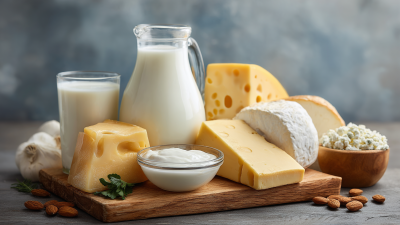
Unlocking the Secrets of Dairy: How Milk Transforms Nutrition and Wellness
-

Exploring the Health Benefits of Consuming Diverse Milk Products in Your Daily Diet
-
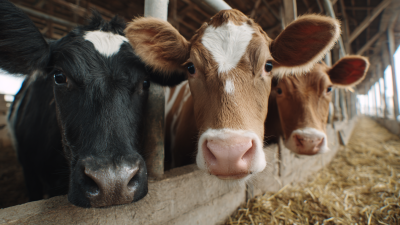
Exploring Sustainable Products of Dairy Farming and Their Impact on Global Nutrition
-
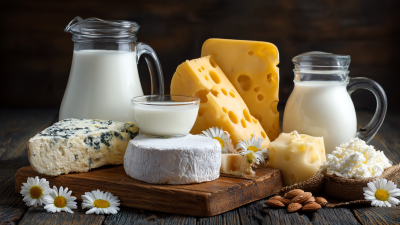
The Surprising Health Benefits of Incorporating Dairy Products into Your Daily Diet
-
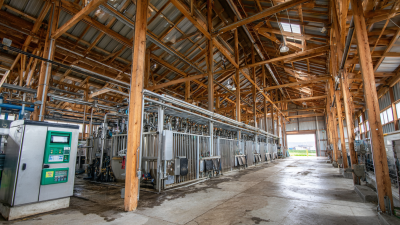
Essential Dairy Barn Equipment Upgrades for Modern Farming Efficiency
-
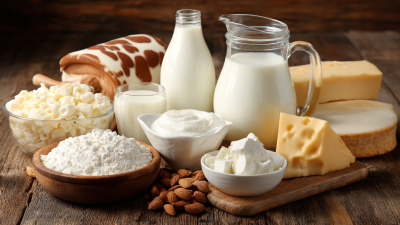
Exploring the Nutritional Benefits of All Dairy Products: What Recent Studies Reveal
